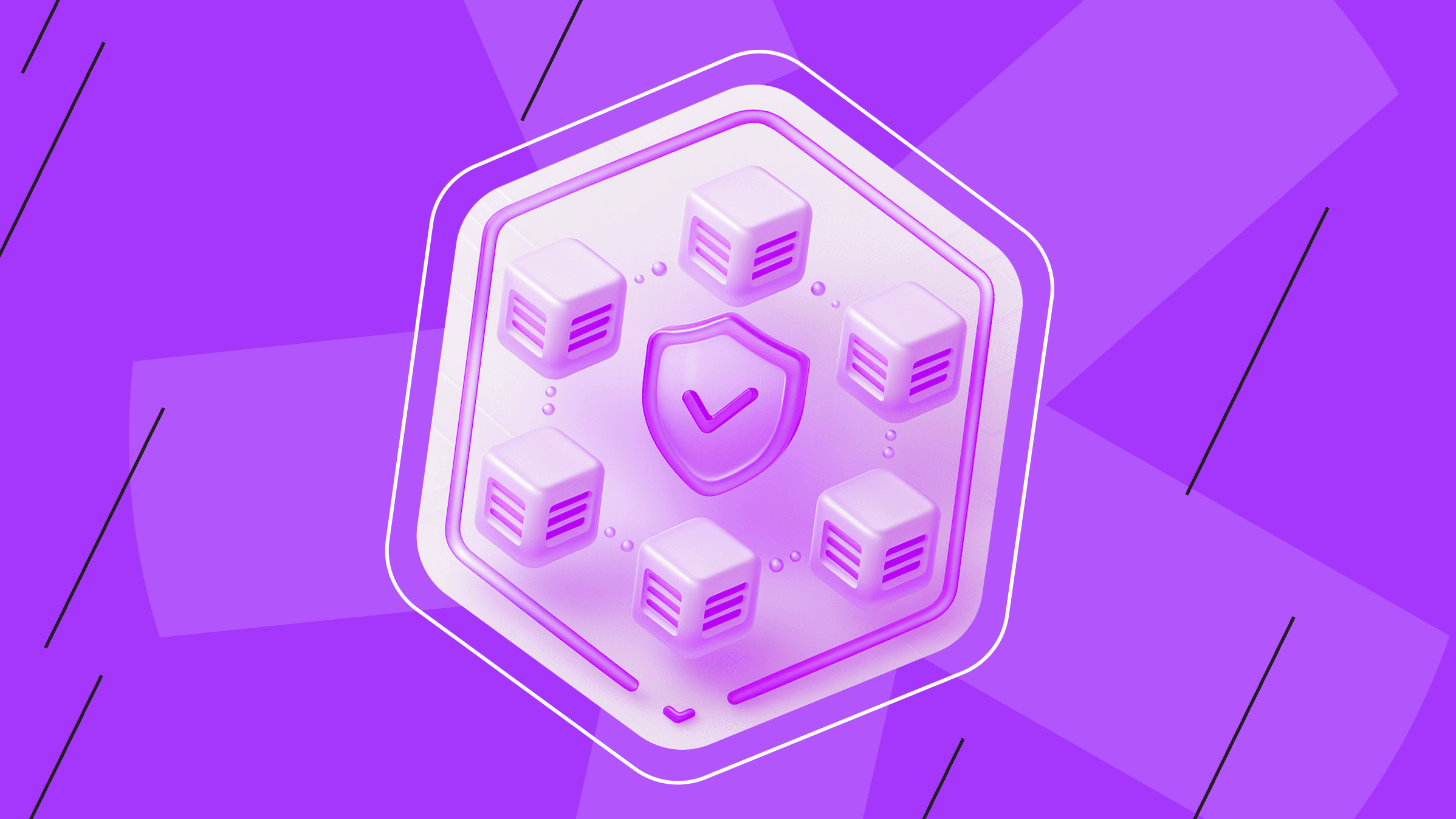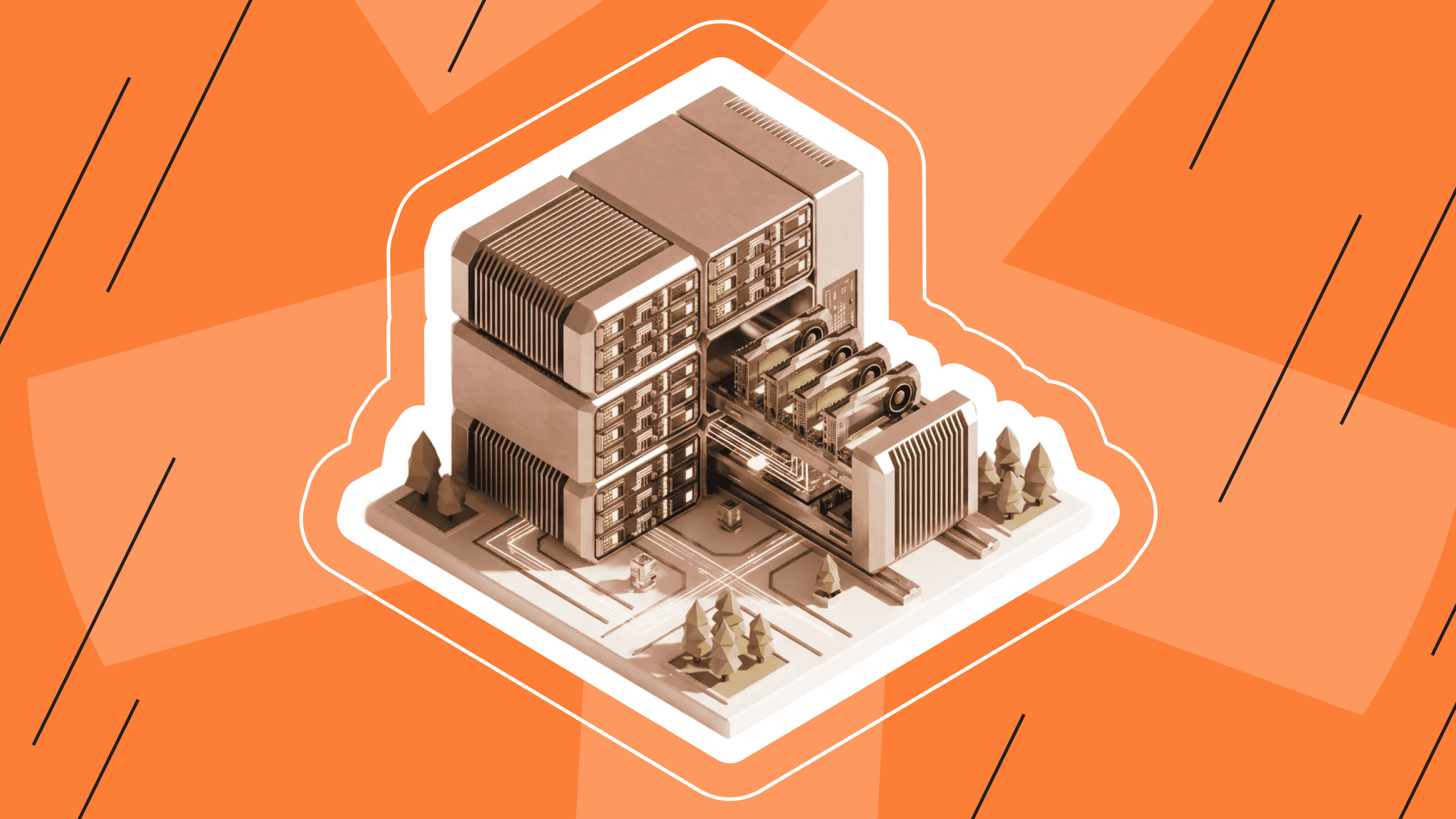
- Why Blockchain Node Security Matters
- Common Blockchain Security Issues Affecting Nodes
- Hosting and Infrastructure Considerations for Node Security
- Network-Level Protection for Blockchain Nodes
- Secrets Management and Access Control
- Keeping Your Node Software Secure and Up to Date
- Example Setup: Securing a Solana Node on a Dedicated Server
- FAQ: Blockchain Security and Nodes
- Wrap-Up: Secure Nodes, Strong Blockchain
Key highlights:
- A single compromised node can threaten the whole network.
- Common risks: key leaks, DDoS, exposed RPC, misconfigs.
- Hosting matters: dedicated servers offer the best isolation.
- Store secrets in secure vaults with RBAC and 2FA.
Blockchain security is non-negotiable. Whether you’re running a validator, miner, or full node, you’re part of a decentralized ecosystem built on trust and integrity. And that trust? It begins with you — more specifically, with your node.
If a node gets hacked or goes offline, it can cause real problems not just for you, but for the entire network. That is why strong security for blockchain node hosting is essential.
Let’s explore blockchain node security: the issues, the fixes, and how to make sure your node doesn’t become the entry point for a network-wide disaster.
Why Blockchain Node Security Matters
In the blockchain, if your node isn’t secure, your data isn’t either — and neither is the network’s trust in you.
Blockchain’s Security Model Depends on Nodes
Nodes are the foundation of blockchain security networks. Every transaction, every block, and every consensus check flows through them. If a node is not secure, the entire system’s credibility suffers.
The entire idea of blockchain security relies on decentralization, but decentralization alone doesn’t make your setup safe. Nodes hold private keys, broadcast blocks, and validate data — and bad actors are aware of this.
What Happens When a Node Gets Compromised
If a malicious actor gains access to a node, they could:
- Steal private keys or API tokens.
- Redirect or manipulate traffic (DNS poisoning, man-in-the-middle attacks).
- Serve outdated or incorrect blocks.
- Launch Sybil or eclipse attacks.
Even a single compromised node can undermine trust across the network. That’s why robust node security measures are critical for maintaining the integrity and security of any blockchain ecosystem.
Common Blockchain Security Issues Affecting Nodes

Even with a strong protocol, a blockchain is only as secure as the nodes that support it. These nodes face a range of risks that can threaten blockchain security. These risks are not only from external attackers, but also weak setups, outdated software, and human error.
Exposure to DDoS, Exploits, and Key Theft
Blockchain nodes are often public-facing, which means they are exposed. Hackers love that. Without proper rate-limiting, firewalls, and secrets management, your node may be:
- Crashed by DDoS attacks.
- Exploited through unpatched remote procedure call (RPC) endpoints.
- Looted for cryptographic keys or wallet credentials.
These blockchain security issues have already taken down major networks. For example, in 2021, the Solana network went offline for over 17 hours due to a massive DDoS attack. The source? Bots spamming transactions through exposed RPC endpoints, which overwhelmed validator nodes and disrupted block production. This incident revealed how an improperly secured node can jeopardize an entire high-performance chain.
Vulnerabilities in Blockchain Clients and OS
Even the blockchain clients are not equally secure. Bugs in clients like Geth, Solana Labs’ software, or older Bitcoin implementations can expose nodes to issues such as:
- Memory corruption.
- Logic bugs.
- Remote code execution.
Combine that with an outdated or unpatched OS, and you’re inviting trouble.
Misconfigurations and Insider Threats
Even smart sysadmins make mistakes. An exposed port, a reused password, or improper user roles can create vulnerabilities. Insiders (or even contractors) might:
- Change configurations to siphon funds.
- Leak access keys.
- Disrupt syncing or consensus.
Effective blockchain node security needs multiple layers of protection, not just a strong password.
Hosting and Infrastructure Considerations for Node Security

Your hosting setup is the foundation of your node's security. If the infrastructure is weak, even the best configurations won’t protect you. That’s why choosing the right environment is one of the first and most important decisions for a blockchain node's security.
VPS vs. Dedicated Server for Node Security
Renting a VPS can be a good start, but for serious blockchain node security, dedicated servers win:
|
Features |
VPS |
Dedicated Server |
|
Isolation |
Shared kernel |
Full hardware isolation |
|
Performance |
Variable |
Consistent and high |
|
Security risk |
Higher (multi-tenant) |
Lower (single-tenant) |
|
Best for |
Dev/testing nodes |
Production-grade nodes |
If you're running a validator or full node for any major blockchain, a dedicated server is the safer choice.
Why Public Cloud Defaults May Hurt Security
Amazon Web Services (AWS) and Google Cloud Platform are flexible, but their default configurations often prioritize ease over node security. Public IPs, wide-open access rules, and vendor-managed secrets can all create weak points.
You can also go for the cloud, but it’s important to secure it properly. For high-value nodes, it’s better to avoid shared cloud environments altogether.
Network-Level Protection for Blockchain Nodes
Nodes are always connected to a network, which means they're exposed to potential threats from outside. Protecting your node's network perimeter is essential to reducing attack risks.
- Use a firewall: Set up a firewall to block unwanted traffic. Only open ports that your blockchain client needs. For example, Ethereum commonly uses TCP port 30303. Close everything else to keep most threats out.
- Deploy intrusion prevention tools: Tools like Fail2Ban can block IP addresses that repeatedly fail login attempts. They help reduce brute-force attacks and noisy scanners searching for weak spots.
- Require VPN for access: Remote access to your node should never be over the open internet. Set up a VPN and restrict all admin or SSH access to the VPN interface. This makes your node invisible to most attackers.
- Use reverse proxies for API and RPC: If you need to expose an RPC endpoint, do not expose it directly. Use a reverse proxy like NGINX or HAProxy. Add basic authentication, rate limits, and IP allowlists. If possible, implement mutual Transport Layer Security (TLS) for stronger security.
- Protect public IPs: Avoid using your node's real IP address for any public-facing services. Use Cloudflare Tunnel or similar tools to securely route traffic through a trusted proxy without revealing your actual server IP.
- Monitor network activity: Use tools such as iftop, nethogs, or advanced network monitoring platforms. Watch for unusual traffic patterns, sudden spikes, or unknown connections. These could be signs of scanning, DDoS attacks, or compromise.
Network-level security is your node’s first line of defense. Keep it tight and review it regularly.
Secrets Management and Access Control

Sensitive data like private keys, seed phrases, API tokens, and passwords must be handled with extreme care. These are the keys to your node and funds. If they leak, attackers can take full control. Plaintext storage is never safe.
1. Use Secure Vaults, Not Flat Files
Avoid storing secrets in .env files, config files, or hardcoded paths. Instead, use tools specifically designed for secret data storage:
- HashiCorp Vault: A widely adopted tool known for its strong access controls and support for dynamic secrets.
- AWS Secrets Manager: Designed for integration with AWS services and identity and access management policies.
- GNU Privacy Guard-encrypted files: Useful for smaller setups, since only trusted users can decrypt them.
These tools encrypt your data at rest and enforce access control.
2. Apply Role-Based Access Control
Limit who can see or change secrets. Admins should have broader access, while developers and operators should have only what’s necessary. The fewer people with access to a private key, the safer it is.
3. Enforce Two-Factor Authentication (2FA)
Any service that stores or manages secrets should enable 2FA. This includes cloud dashboards, vault access tools, or CI/CD platforms. If a password is compromised, 2FA adds a critical second line of defense.
4. Audit Access Regularly
Keep logs of who accessed what and when. Regularly review those logs. If someone is accessing secrets when they shouldn't be, you need to know fast. Some secret managers (like HashiCorp Vault) include built-in audit trails. Use them.
5. Rotate Secrets Periodically
Keys, tokens, and passwords shouldn’t live forever. Set up a regular rotation schedule. If a secret is ever exposed or suspected to be at risk, rotate it immediately and revoke old access.
Managing secrets well isn’t hard, but ignoring them is dangerous. A leaked API key or wallet seed can take down your entire node. Be cautious, stay organized, and don’t cut corners.
Keeping Your Node Software Secure and Up to Date

Keeping your node software updated is one of the simplest and most important parts of blockchain and node security. Blockchain clients release patches regularly to fix bugs, improve performance issues, and address known security flaws. Delaying updates may leave your node exposed.
Keep the Blockchain Client Up to Date
Every blockchain security network uses its own client, such as Geth for Ethereum or Solana Validator for Solana. These clients are updated frequently. Updates may include fixes for vulnerabilities that attackers already know how to exploit. Make it a habit to:
- Subscribe to release notes and security alerts from the client maintainers.
- Join official Discord servers or mailing lists for real-time updates.
- Test new updates in a staging environment before applying them in production.
Apply Operating System Patches Regularly
Linux systems regularly receive security updates for the kernel, SSH, networking tools, and libraries. These may not seem blockchain-related, but they are all part of your node's attack surface. Keep your system current using your package manager:
sudo apt update && sudo apt upgrade -y # for Ubuntu/Debian
Enable automatic updates for critical patches if you're not updating manually each week.
Automate Security Checks
Tools like Lynis, OpenSCAP, or CIS Benchmarks can regularly scan your system for misconfigurations or outdated software. You can also set up cron jobs to check for package updates.
Review Your Configurations
Blockchain node security isn’t just about the code. Weak configurations can be just as dangerous. Review settings for:
- RPC access.
- Cross-Origin Resource Sharing policies.
- Peer connections.
- API permissions.
If you're using containers or virtual machines, keep those images updated and hardened as well.
Monitor for Known Vulnerabilities
Track Common Vulnerabilities and Exposures (CVEs) for your OS, client software, and dependencies. Tools like cve-check-tool or osv-scanner can automate this. Subscribe to the CVE database for real-time alerts.
Software maintenance might feel boring, but it’s what separates a secure node from an exposed one. Stay updated, stay alert, and never assume default settings are safe.
Example Setup: Securing a Solana Node on a Dedicated Server

Let’s walk through a real-world example of setting up a Solana node on a dedicated server.
Preparing the Server (OS Hardening and Firewall)
Start with a clean Ubuntu LTS image on a Solana Server from is*hosting.
Then:
# Basic hardeningsudo apt update && sudo apt upgrade -ysudo ufw default deny incomingsudo ufw default allow outgoingsudo ufw allow sshsudo ufw allow 8001/tcp # Example Solana portsudo ufw enable
Disable root login and use SSH keys only.
Installing and Configuring the Client (Solana CLI)
Use the official Solana install script and run the client under a dedicated user account with the least privilege:
sh -c "$(curl -sSfL https://release.solana.com/stable/install)"solana config set --url https://api.mainnet-beta.solana.com
Use a separate, locked-down wallet for staking.
Securing RPC, API Access, and Syncing Behavior
Expose APIs only via reverse proxy with basic auth or mutual TLS.
solana-validator --rpc-bind-address 127.0.0.1
Here are some other ways:
- Avoid open syncing unless you’re serving a full history to others.
- Set up a reverse proxy with auth (e.g., NGINX + Basic Auth).
- Whitelist trusted IPs.
Monitoring and Alerts (e.g., Prometheus + Grafana)
Deploy Prometheus exporters to gather system and client metrics. Set up Grafana dashboards to monitor:
- CPU, RAM, and disk usage.
- Solana sync status.
- Missed blocks or validation errors.
Set alerts to notify you when sync lags or your node goes offline.
FAQ: Blockchain Security and Nodes
What is a node in blockchain?
A node is any computer that participates in a blockchain network. It can validate transactions, relay data, and maintain a full or partial copy of the ledger.
How do nodes contribute to the security of a blockchain?
Nodes verify transactions and blocks independently. The more honest nodes there are, the more difficult it is for attackers to push fake data or control consensus.
How does a hash help secure blockchain technology?
Hashes create a unique fingerprint for each block. If someone alters a transaction, the hash changes, breaking the chain and exposing the tampering.
What is blockchain security?
Blockchain security includes the technology, processes, and best practices used to protect blockchain systems from threats such as theft, fraud, DDoS attacks, and bugs.
Wrap-Up: Secure Nodes, Strong Blockchain
Blockchain security starts with secure nodes, and node security isn’t a one-and-done checklist. It’s ongoing. It’s layered. It’s active.
Choose the right infrastructure. Keep your software tight. Watch your access points. And for the love of decentralization, don’t expose your RPC to the internet.
Want help getting it right? is*hosting’s Solana and blockchain-ready servers give you the tools to run secure, stable nodes from day one.
Managed Dedicated Server
Full power, zero hassle. We handle setup, updates, monitoring, and support so that you can focus on your project.
From $75.00/mo- Why Blockchain Node Security Matters
- Common Blockchain Security Issues Affecting Nodes
- Hosting and Infrastructure Considerations for Node Security
- Network-Level Protection for Blockchain Nodes
- Secrets Management and Access Control
- Keeping Your Node Software Secure and Up to Date
- Example Setup: Securing a Solana Node on a Dedicated Server
- FAQ: Blockchain Security and Nodes
- Wrap-Up: Secure Nodes, Strong Blockchain


